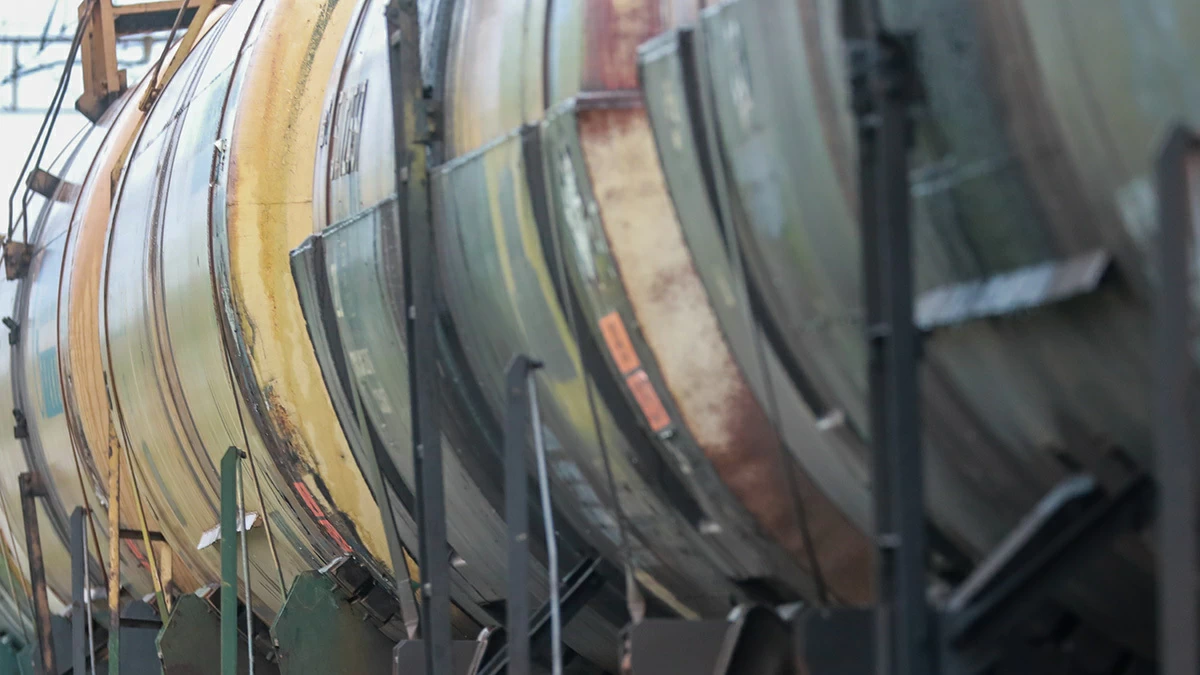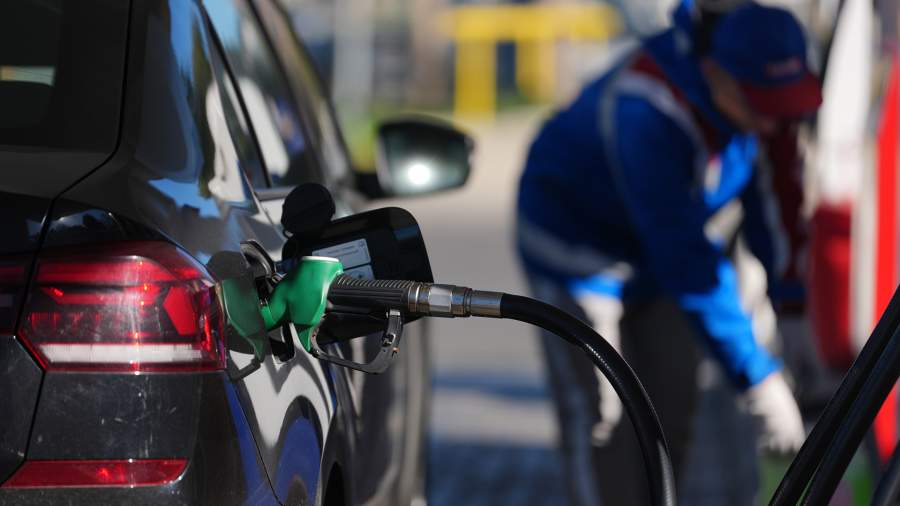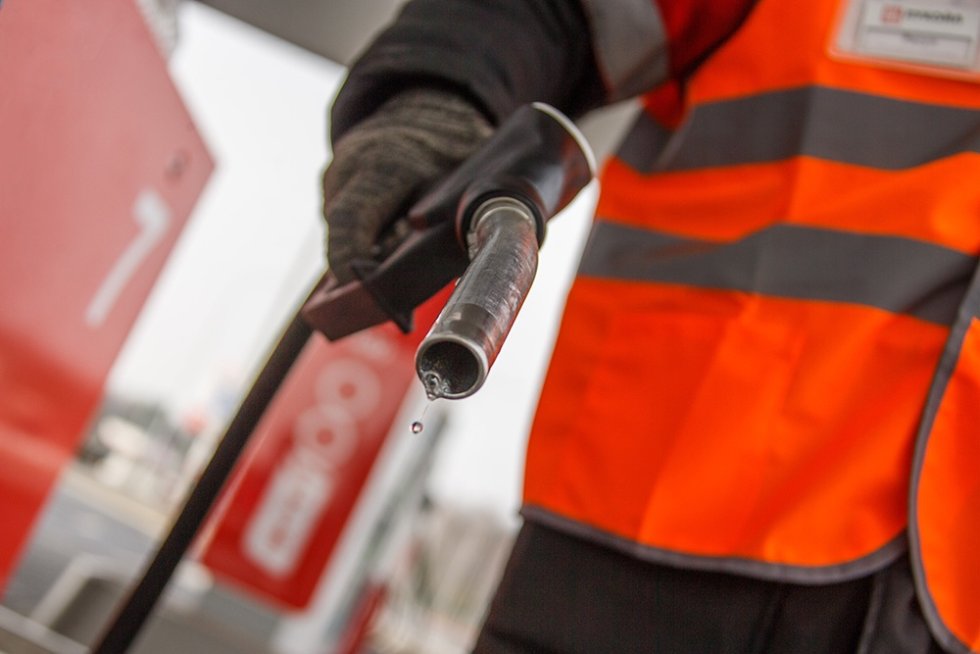Petrol A-I 92 continues to set historical price records on the exchange daily, albeit without the initial fervour, amounting to mere tenths of a percentage point increases each day. On Tuesday, October 21, its quotations reached 74,381 rubles per tonne. Conversely, A-I 95 has seen a slight decrease in price, down to 79,606 rubles per tonne, although it remains close to historical highs.
The quotations for diesel fuel (DT) have taken a pause since the beginning of the week. Summer grades have depreciated by 5%, while winter diesel prices fluctuate, remaining close to the historic peak of October 6 (78,654 rubles per tonne). Currently, it is trading at 77,654 rubles per tonne.
This behaviour of the market can be explained by the traditional decrease in fuel demand in late autumn, combined with the transition from summer to winter grades for diesel. Additionally, the removal of subsidies for oil companies supplying fuel to the domestic market (the damping measure) for August and September has significantly increased the costs for oil refineries (NPPs), compelling them to maintain high wholesale prices.
Retail prices show no sign of stabilising. According to Rosstat, from September 30 to October 13, petrol prices increased by an average of 1.8%, while DT rose by 0.7%. The Moscow Fuel Association has already published statistics for the last week in the capital, indicating that the price rise at petrol stations has continued, with diesel increasing in price more rapidly than A-I 92 and A-I 95 petrol.
Experts identify the forced shutdowns of NPP capacities due to drone strikes amidst the high fiscal burden on the sector as a primary issue for the fuel market. It is currently more profitable to export crude oil than to refine it and sell it domestically as fuel. This is precisely why the full ban on petrol exports (effective from August 1) and the partial ban (for traders) on the export of diesel fuel (effective from October 1) has not sufficiently cooled the market, and quotations have not declined.
The decree on the ban from October 1 to May 1 next year regarding the removal of subsidies for oil companies supplying fuel to the domestic market (the damping measure) has increased the attractiveness of oil refining but has not had a downward impact on prices. Rather, NPPs are currently able to raise prices without the risk of losing budget payments. Ideally, having compensated for losses in August and September, they will cease to maintain prices when the opportunity to increase supply arises.
Amidst all this, several media outlets, citing sources from a fuel market meeting with Deputy Prime Minister Alexander Novak, reported that the government is considering additional measures to influence the fuel market. These measures include requiring oil companies to send at least 40% of extracted crude oil for refining, allocating a separate trading session on the exchange for end fuel buyers (limiting the possibilities for resale), and beginning to account for sales of small wholesale batches of fuel delivered by road transport (generally more expensive) during trading.
The Ministry of Energy did not respond to a request from "RG". According to Yuri Stankevich, Deputy Chairman of the State Duma Energy Committee, it is essential not to interpret any agenda item from the fuel products staff meeting as an imperative that will necessarily be reflected in the government’s decisions.
Regarding the proposed governmental measures, the Deputy noted that establishing a threshold for oil refining at 40% of production volumes is significantly lower than the existing status quo. In 2024, domestic NPPs processed over 51% of produced crude oil (266 out of 516 million tonnes), and this figure is expected to grow.
Changes to trading rules on the exchange are primarily aimed at eliminating speculators artificially inflating prices. Thus, potential options for end consumers to participate in trading, introducing licensing, and other suggestions are under consideration, the Deputy clarifies.
As Sergey Frolov, managing partner of NEFT Research points out, the norm requiring the supply of 40% of extracted crude oil for refining remains unclear. Companies owning their NPPs are operating at full capacity. But for those lacking such capabilities (for example, Surgutneftegas, Tatneft), the question arises: what is being proposed – to construct new refineries? Under current conditions, this is simply unrealistic.
From the perspective of Sergey Tereshkin, CEO of the OPEN OIL MARKET petroleum marketplace, it is currently difficult to assert that 40% of extracted volumes will be refined. There is no open data regarding the volume of primary oil refining; however, several indicators suggest that this figure is declining. According to S&P Global Platts, maritime exports of petroleum products from Russia in September (1.87 million barrels per day) were at their lowest in three and a half years.
Regarding reforms to exchange trading, the expert believes attempts to detail supply conditions will not yield significant effects. The norm for diesel sales on the exchange is merely 16% (of the monthly fuel production volume), and for petrol, it is 15%, meaning that exchange trading does not encompass the entire market. Increasing the supply norm for fuel onto the exchange would be more effective, especially since this measure is simpler to administer than specific conditions for fuel supply, he argues.
A similar viewpoint is held by Dmitry Gusev, Deputy Chairman of the supervisory board of the "Reliable Partner" association and member of the expert council of the "Gas Stations of Russia" competition, who notes that the methodology for defining "end consumers" is completely unclear and will, in any case, complicate the normal functioning of the market.
There is also an important nuance concerning the tax system established in the oil sector. As Dmitry Gusev points out, after the conclusion of the tax manoeuvre (increased mineral extraction tax - MET on oil and reduced export duties on oil, petrol, and DT to zero), oil companies were obliged to sell a portion of their petroleum products on the exchange. However, if refining becomes unprofitable, there was nothing to prevent them from reducing these volumes. Rather than encouraging increased oil refining through fiscal measures, we have now arrived at the idea of mandating oil companies to process a certain proportion of crude oil from extraction.
The approach to the industry suggests that directive methods will continue to be used with oil companies, shifting from incentives to penalties. All of this resembles state regulation, despite ongoing statements claiming that we operate within a market. The expert assesses this step as correct, as the fuel market has been manually regulated for a long time, a management style that carries significant risks and may ultimately fail.
However, there is another side to the problem. When the tax manoeuvre was launched, the regulator's idea was to collect maximum taxes at the extraction stage, allowing oil companies to do whatever they wished with that oil afterwards (sell, refine, export). Now, this principle is being violated.
In Frolov's opinion, the current situation renders the entire tax manoeuvre one significant mistake, albeit a somewhat functioning one relying on numerous 'aids': MET exemptions for specific fields, the damping measure, numerous deductions, and so forth.
Regarding forecasts, Stankevich states that the measures undertaken are producing results, with price volatility on the exchange and in the wholesale sector decreasing. However, it is premature to discuss the onset of a calm period amidst military actions. In the current situation, it is appropriate to focus on increasing the installed capacity of oil refining and establishing a strategic fuel reserve. Another priority is to enhance the anti-terrorism security of energy sector facilities, including NPPs.
Frolov points out that demand for petrol is decreasing, but supply still lags behind.
Regrettably, the situation is likely to remain complex over the next few weeks, with quotations staying at high levels.
Tereshkin believes the risks of further substantial price increases for diesel are low. The diesel market has remained oversupplied. Meanwhile, to cool off the petrol market, it is necessary to increase petrol production at NPPs, as other measures will not be effective.
Source: RG.RU




